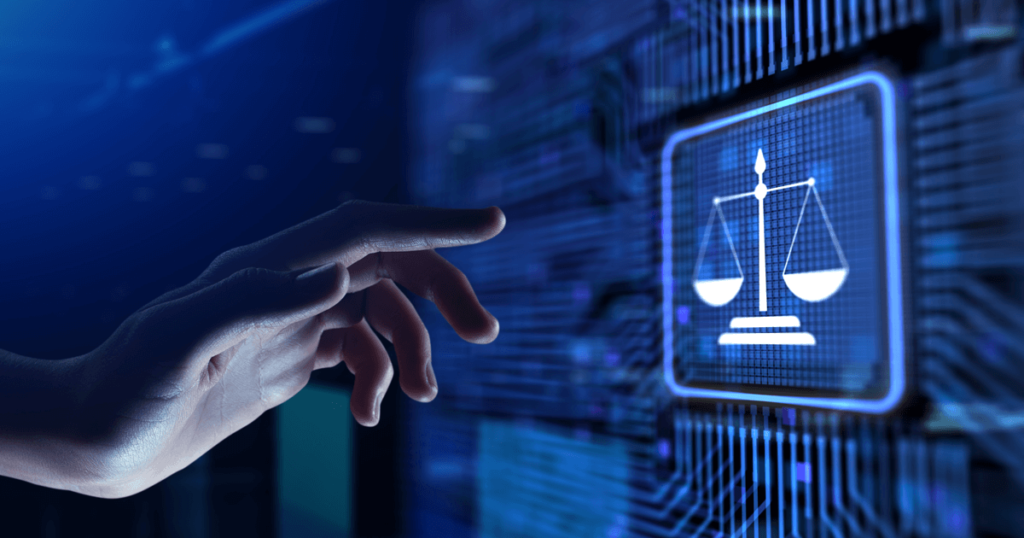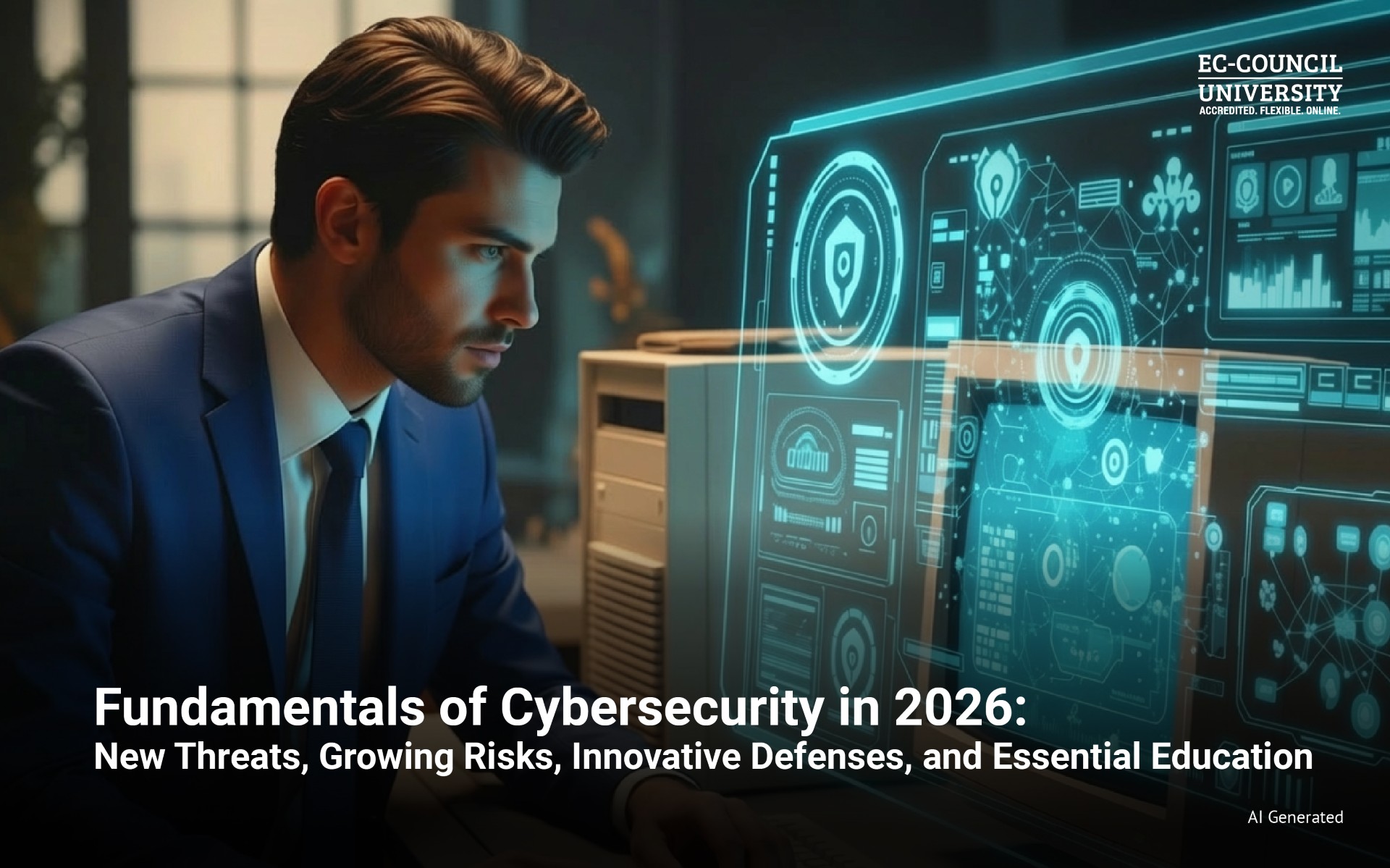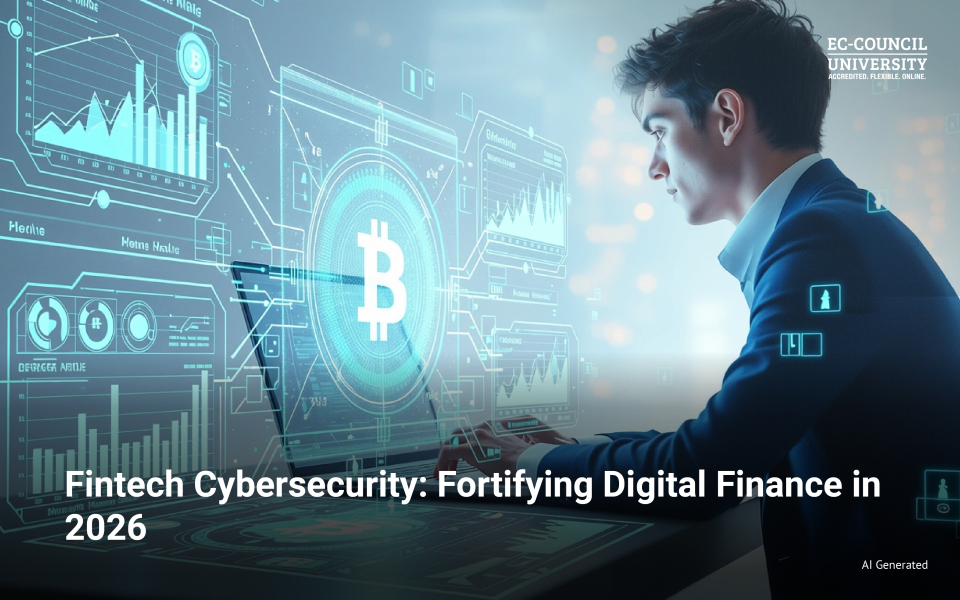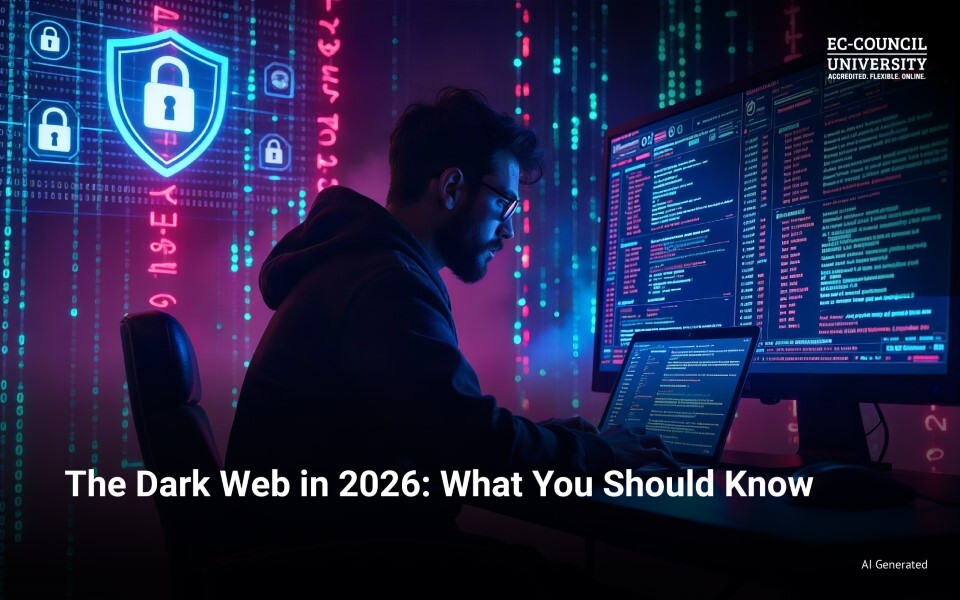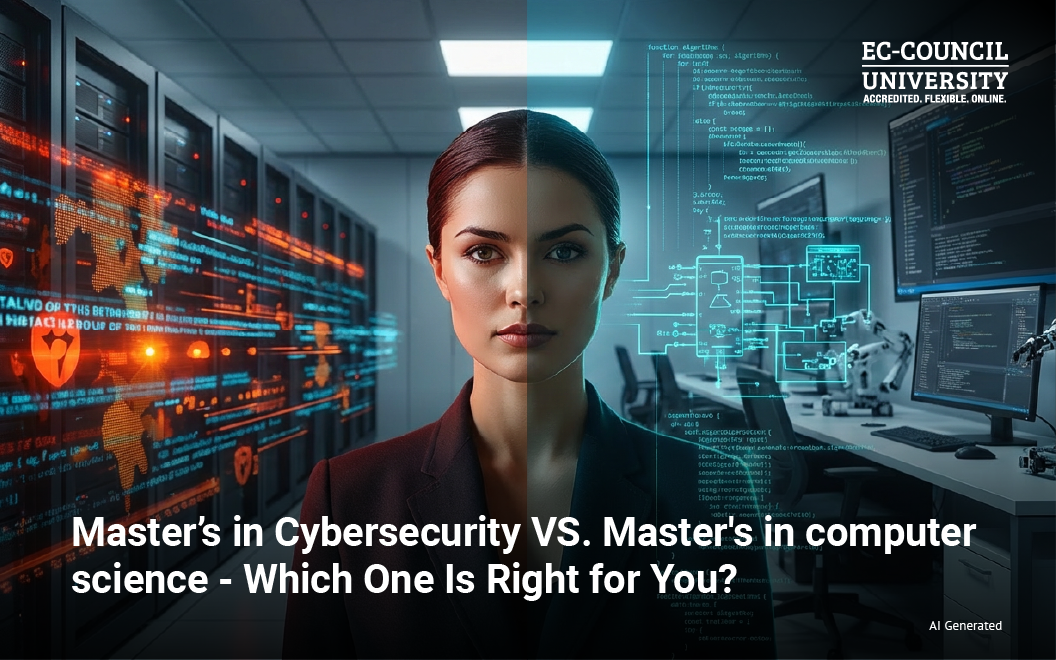Cybersecurity and information protection have become the buzzwords of today’s post-pandemic world. Organizations, governments, financial institutions, and other entities remain under constant cyber threats. The means of cyberattacks that are executed by cybercriminals are getting more sophisticated with each passing day, thereby increasing the risk of any major cybersecurity breach. Therefore, it has become indispensable for organizations they understand cyber laws and legal nuances of cybersecurity.
Did you know? According to Forbes, in the year 2019, both individuals and business organizations lost over $3.5 billion because of cybercrime. In this period, a staggering 467,361 cybercrime complaints were registered by the Federal Bureau of Investigation (FBI).
In this blog, we will understand the utility of cyber laws and discuss EC-Council University’s dedicated course on cyber laws included in its Master of Science in Cyber Security degree and a course dedicated to legal issues in cybersecurity in its Bachelor of Science in Cyber Security degree.
What are cyber laws?
Cyber laws are the laws that provide legal protection to internet users against a multitude of complexities and legal issues emerging every now and then. The ever-expanding cyberspace has further given way to the specialized branch of law known as cyber laws, which provides cyber protection to every industry and organization.
What is the role of cyber laws?
Cyber laws serve a variety of purposes crucial to the usage of the internet. Some of these laws protect internet users from becoming victims of any cybercrime. Whereas, some other laws lay down rules for individuals to use the internet and the computer system. Primary areas included under cyber laws are:
Fraud
Cyber laws are there to protect consumers from online frauds. They exist to prevent online crimes including credit card theft and identity theft. A person who commits such thefts stands to face federal and state criminal charges.
Copyright
Copyright is a legal area that defends the rights of an entity be it an individual and/or a company to profit from their creative work. Individuals and companies both need copyright laws to prevent copyright infringement and enforce copyright protection.
Defamation
Defamation laws are the civil laws that give immunity to individuals from publically made false statements or allegations that can prove to be damaging for the reputation of a person or a business. When such a mala fide deed is done online, it falls under the bracket of cyber laws.
How to build a successful career in cybersecurity?
Here’s a video that can help you find answer to this question.
What are the advantages of cyber laws?
Cyber laws are extremely important for organizations to have an effective cybersecurity net for their business operations and digital systems. Every organization comes up with and follows its own cybersecurity guidelines, cybersecurity policies, cybersecurity legislation, and legal issues regulations. There are various reasons that make cyber laws essential. Some of these reasons are:
Protection of business and employee information
Cyber laws come into play when businesses seek to protect their data and employee information. Cyber laws allow employees of an organization to access the internet with minimum risk of a potential cybercrime. It is because of cyber laws that an organization can freely carryout the exchange of important and sensitive data with its stakeholders existing on the broad spectrum of network.
Protection of a user’s personal information
In contemporary times, there are several kinds of threats affecting internet users including that of keeping their sensitive information safe. Cyber laws help users do just that by helping them keep their personal data shared over the internet protected.
EC-Council University program details
EC-Council University is an accredited American university that offers both a Bachelor’s and a Master’s degree in Cybersecurity along with multiple Graduate Certificate Programs (GCPs).
The CIS 301 – Legal issues in Cybersecurity course under Bachelor of Science in Cyber Security degree addresses the connection of law and cybersecurity. It details the Information Security System, legal compliances that are required to protect critical governmental and corporate infrastructure, and intellectual property created by individuals and organizations. This course talks of a variety of crucial subjects including amendments in many of the relevant federal and state laws and regulations since 2011 and numerous cybersecurity data breaches highlighting new vulnerabilities.
The ECCU 517 Cyber Law course under Master of Science in Cyber Security degree focuses on legal issues that are affected by online electronic evidence, criminal conduct, and legal ramifications of neglecting trademarks, patents, copyrights, and digital rights. Topics that are covered under this course include privacy laws governing law enforcement investigations in cyberspace, laws, regulations, and international standards, and implications of cybercrimes upon the traditional notions of sovereignty.
FAQs
Ans. Cyberattacks have increased in number over the last decade. They are affecting online operations and businesses across the globe. Some major problems that people often face nowadays include distributed denial of service (DDoS) attacks, Phishing Scams, Malware, and Internal Misuse.
Ans. Amid the global pandemic, cyberattacks are spreading rapidly across the globe and affecting computer systems, networks, and more. Some of the top cyber threats that businesses can face this year include – Phishing attack, Cloud Jacking, Sophisticated and Targeted Ransomware Attacks, Mobile Malware, and Insider Threats.
Ans.The rise in digital dependency globally has given a boost to the need of skilled cybersecurity professionals. While the number of cybersecurity graduate students is rising in the industry. Aspirants need to make sure that they possess the right skill set for the job.

